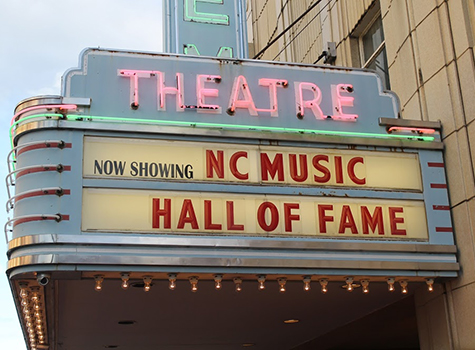
Okay, I broke the pledge. No, no, I did not sneak a quarter pounder with cheese and destroy my diet plans. It’s about that thin wire of emotional stability that I walk—and frequently mention due to my obsession with psychological noise. Fancying myself some sort of PR guy, I have gathered enough info now to make my case to most people with remotes duct-taped to their hands. But I ain’t no psychiatrist. I am just very romantic. Ahem!
So, I shouldn’t have done it but I clicked that link on WhatsApp some relative had sent, and yes, I need to quit those nasty social media and related habits as well. I was alone in the house. It was sundown. It was Ustad Amanat Ali Khan singing a classic ghazal. Honey was flowing from his lips. But looking out at the drowning sun, I started feeling down, and then two minutes into the song, I felt suicidally depressed. My eyes were tearing, I buried myself into the couch cushion but forced myself up due to OCD that kept me from drooling on den furniture.
The cat was a bare eight feet away. I sprung off the couch and jumped on him to get a gigantic comforting hug. I forgot that cats are not into that kind of mush. He meowed, yelped, hissed, and ran around the wrong side of the house and up the steps—to probably hide under a bed and celebrate his survival from idiots with hormonal issues. I had to exit the darkness and breathe in the fresh air. The problem was that it was still 90 degrees at 8pm and with the code orange ozone blended with a few million mosquitoes, I only got to the porch door and dropped to my knees.
I looked at the sky, the trees, the ground, even a bird, and apologized to every entity for my failure. I even said sorry to the rosebush and hugged it, which was quite unpleasant, but important to my reaffirmation that this time I would really really never click any link that could lead to a video and audio. My tender heart just had given up the ghost on what the rest of humanity calls entertainment.
When many years ago I had made the pledge to keep myself in the present and take deep breaths and sink my fingers into the next moment and crawl forward and so on, well, it was based on my keen observation that all this entertainment stuff activates memories, which is all scary for me. But my deeply analytical skills also pointed (other than mental illness) to permanently ingrained cultural biases that handicapped me right at birth.
The subcontinent attitude, despite the myriad cultures, traditions and religions, remained a hyperactive, hypertonic state of morbid romanticism that I believe affects every aspect of our lives. From the very heart-wrenching Urdu ghazals and poems, to the thousands of Indian and Pakistani movies that I watched peripherally while playing with my toys in front of sniffling adults, a negative attitude just had to blossom.
And then the drama of death, where lovers were wasting away on the graves of spouses, would never leave home again, their hair instantly turning white, wrinkles chiseled into their pained faces, and that permanent cough developing which would unite them in the afterlife with their one and only love. And yes, the Shia hymns followed by the self flagellation with chains, not pleasant. Dead loved ones lying at home with hundreds of people crying and screaming. Also, not good.
My early teens in Thailand, I started to notice that people would have a great happy party to celebrate a person’s transition to a new level. That experience was soon followed by scores of deaths and funerals in America. As time went on, it became more and more clinical and easier. Was it my age? Was it a thicker skin covering my mushy emotional heart? I don’t know. I have stood by many a dead body in a coffin, fresh from some hymns, and the preacher telling us all that this dead person is now sitting by Jesus’ side. And I’ve said those things and agreed with people around me while we peered into the coffin: “She looks so beautiful. And peaceful.”
I’m a combination of a sack full of scrabble pieces and a box full of an unsolved jigsaw. When you throw me into memory’s abyss, promises fly in my swampy brain’s battleground like poison arrows. A thousand things lovers said; a million nods of my head, agreeing that we were now in that Zen higher plane where we were dancing spirits for life, where nothing would ever divide us, no sadness would ever overcome us. The pearl of necklace of unconditional love around my neck from parents, family, friends.
So yes, every deep lung clearing draw of the ironclad voiceboxes of the singing masters gives me extreme heartburn and the angst eats my brain like acid. I really don’t want deep now. I want to drink a beer and watch Dumb and Dumber and eat pizza and listen to “Gangnam Style” or something even more idiotic. I have suppressed that rabid romanticism that would make me hurl myself onto anyone’s grave and turn into a skeleton like the Hunchback of Notre Dame. This is America. Hand me a cheeseburger.
That said, loss and death are equally traumatic, life-changing, and painful at a personal and emotional level in every culture. The difference perhaps is how the larger community and your traditions shape your recovery and ensure your ongoing survival.
My parents were romantics who spent their lives watching movies like Taj Mahal and listening to existential angst in the words of Mir and Ghalib. My dad shed many tears, and my mom stayed stern—but believed my dad’s heart was always hers. They never touched in public in the old-world tradition, but occasionally she would look up from a book and ask my dad, “What would you do if I died?” And he would put the Time magazine aside and his eyes would well up and with a cracking voice he would say, “I will also die.” And she would say, “You would probably go to Bangkok after burying me.” They would then return to reading.
———-
Ahsen Jillani a former editor and publisher, is originally from Islamabad, Pakistan, and now lives in Mint Hill. He owns Must Media, a PR company focusing on both political and corporate clients.
Posted: Monday, August 20, 2018



